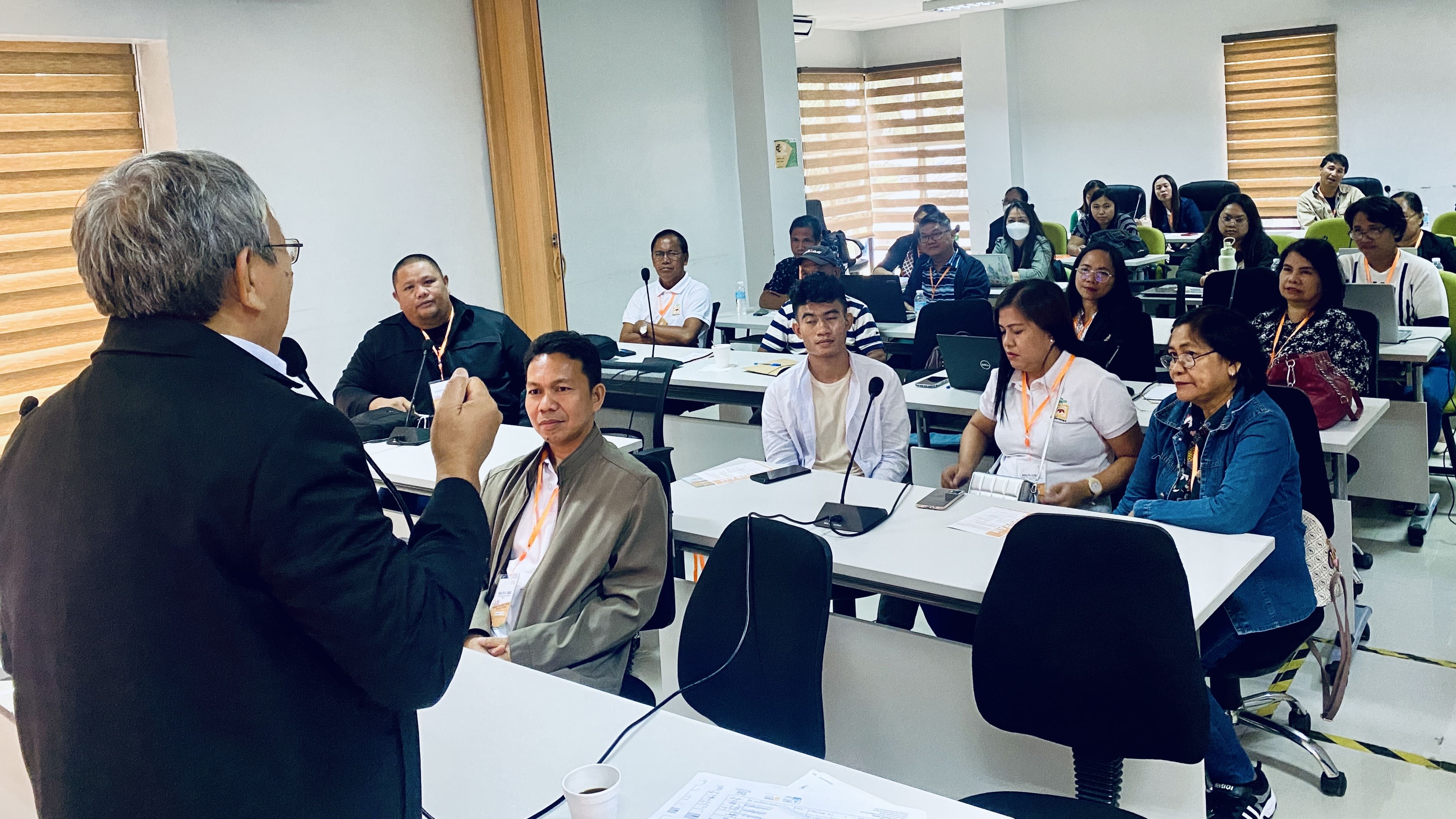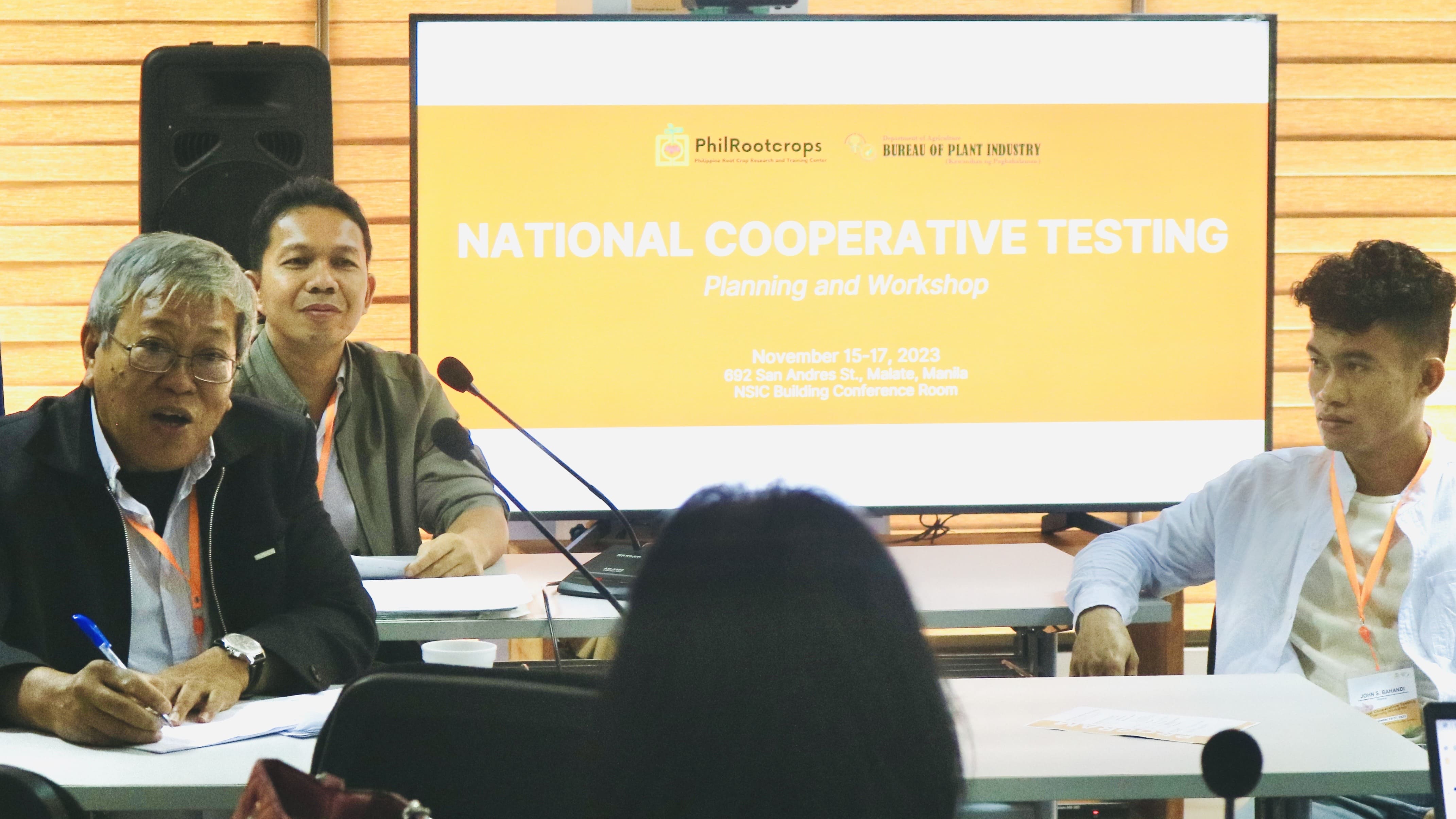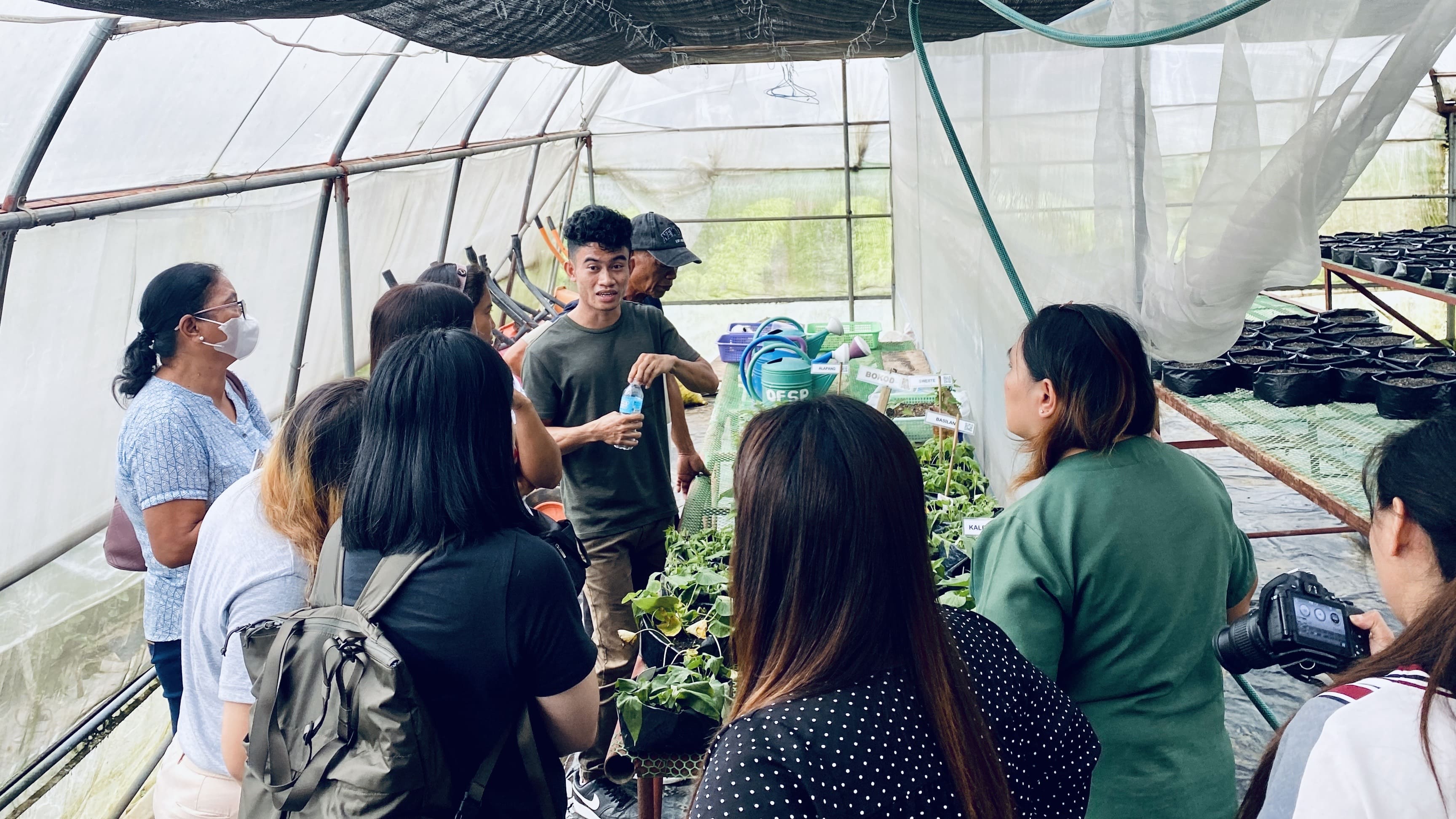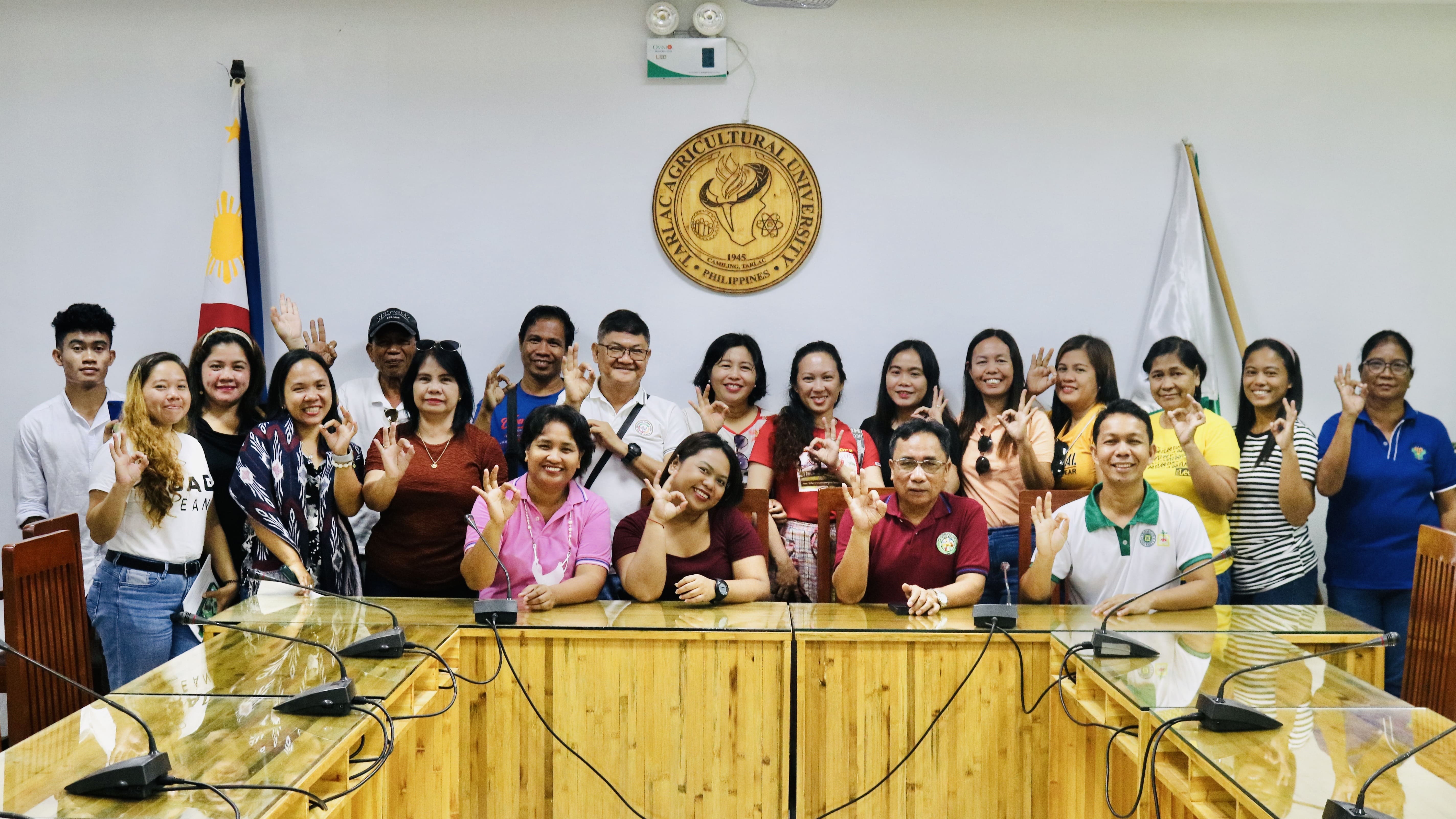VSU leads national planning workshop for varietal improvement of root crops
- Details
- Written by Jeanie Rose S. Deluza and Ulderico B. Alviola
-
Published: 06 December 2023

The Philippine Root Crop Research and Training Center (PhilRootcrops) took the lead in organizing a highly successful National Root Crop Cooperative Testing Program (NRCCTP) held from November 15 to 17, 2023 at the headquarters of the Bureau of Plant Industry - National Seed Industry Council (BPI-NSIC) based in Malate, Manila.
This national planning workshop is a collaborative effort that would ensure the continuous root crops varietal improvement activity nationwide that will also complement the expanding demands of root crops for various uses in both the industrial and non-industrial sectors.
The three-day event, which was co-sponsored by the BPI, served as a platform that brought together representatives from esteemed cooperating agencies and universities actively involved in the root crops varietal improvement program through continued research and development (R&D).
Professor Dr. Dilberto O. Ferraren, Chair of the Root Crops Varietal Improvement Working Group (RCVIWG), steered the planning workshop with support from the Assistant Director of PhilRootcrops and a new key member of the technical working committee, Prof. Marlon M. Tambis.

The central focus of the workshop was on how to resume the nationwide varietal improvement trials of all the major root crops from cassava, sweetpotato, taro and purple yam after being disrupted by the pandemic in 2020.
Another important agenda of the workshop was to craft a new Memorandum of Agreement (MOA) between the VSU Philrootcrops, the Department of Agriculture - Bureau of Plant Industry, along with other cooperating stations that include the following line government agencies and state universities:
- Benguet State University - Northern Philippines Root Crop Center
- Tarlac Agricultural University
- University of the Philippines Los Baños - Institute of Plant Breeding
- University of the Philippines Los Baños - La Granja
- Bureau of Plant Industry - La Granja NCRDC
- University of Southern Mindanao
- Bohol Experimental Station
- Northern Mindanao Agricultural Crops and Livestock Research Complex
- Isabela State University
- Albay Experiment Station - Department of Agriculture
- Central Luzon Integrated Agricultural Research Center
Since its establishment through the Presidential Decree 1107, PhilRootcrops has been the lead agency in developing and recommending new root crops varieties for the country in cooperation with the various strategically located cooperating stations for nationwide trials and commodity testing using different agro-climatic conditions.

With the help of other institutions involved in the root crops breeding program like the Institute of Plant Breeding at the University of the Philippines Los Banos (IPB-UPLB) and NOMIARC in Mindanao with approval from the Philippine Seed Board managed by the National Seed Industry Council, more varieties of root crops have already been approved for cultivation are being used for various agricultural and commercial purposes.
Going beyond strategic planning, the workshop included insightful field visits to Benguet State University and Tarlac Agricultural University. These visits offered hands-on learning opportunities that fostered possible collaborative engagements among the participating organizations.

As part of foresight thinking, a training session for all testing sites was also set in February 2024 with the goal of reorienting and training new participants for the varietal trials.
This national planning workshop underscored the commitment of diverse stakeholders to propel R&D and government-academe cooperation within the root crops industry especially in expanding options for raw materials production and distribution.
With this initiative, it hopes to elevate root crops from a marginal commodity into a high value food product that can be explored and utilized for various agricultural and commercial purposes.
The development and testing of a new variety involve assessments such as general yield trials, analysis of physical attributes, dry matter content, sugar content and other general attributes before the recommendation and registration with the NSIC.

As of 2019, which was pre-pandemic, there recorded 37 varieties of sweetpotato, 48 varieties of cassava, 10 varieties of purple yam and 8 varieties of Taro. These varieties have seen increased adoption and utilization nationwide both for industries and direct consumption.

